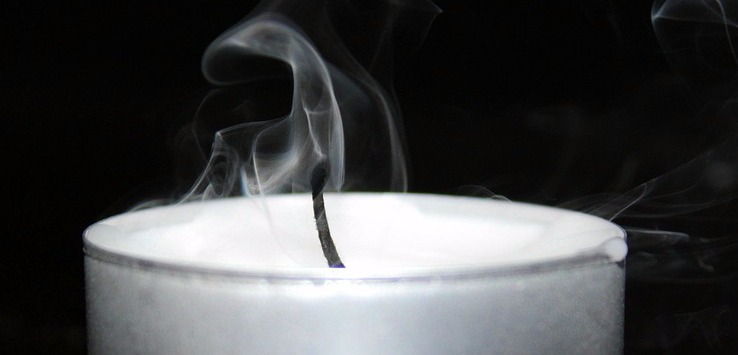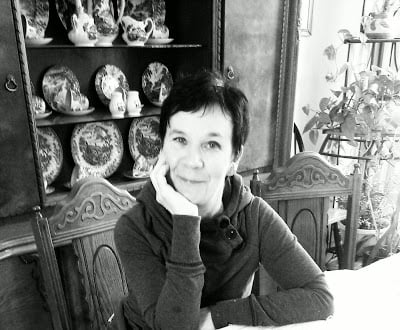 Photo via
Pixabay (2016), CC0 Public Domain
Photo via
Pixabay (2016), CC0 Public Domain
Death is as common as birth, obviously, but old-age homes and palliative care facilities efficiently remove the dying from the public eye. Consequently, most modern folks are ignorant about the process of death and dying and would rather ignore the entire subject. No wonder euthanasia is gaining acceptance. No need to worry about the possibility of enduring a prolonged painful death, no need to watch a loved one suffer; euthanasia will allow people to simply slip into painless oblivion. It could be a scenario from a science fiction story.
However, euthanasia is no longer the stuff of fiction. On June 17, 2016, Bill C-14 was passed in Canada's Parliament to legalize and regulate physician-assisted euthanasia when death is "reasonably foreseeable and the patient is in an advanced state of irreversible decline." The bill has received Royal Assent and is, or will soon become, law. On the surface, euthanasia seems to be a compassionate response to suffering but in terms of people’s eternal existence, it has the potential to be cruel. Often a person’s final destiny is fulfilled only moments before a natural death. Tragically, most people support euthanasia without understanding the process of dying nor how it will prepare them for eternity.
What Do You Know of Death?
In the opening scene of the movie Gran Torino, Walt, a hardened soldier, stands rigidly, scowling at family and friends during his wife’s funeral Mass. Dying from lung disease and tormented by the fact he slaughtered men and boys during the Korean War, Walt accuses his parish priest of knowing nothing of death as he quotes from the funeral homily:
‘Death is bittersweet? Bitter in the pain, sweet in the salvation.' That's what you know of life and death? Good, God. It's pathetic.
A similar accusation could be leveled at most Catholics. If Christians want to speak out against euthanasia, we better know a bit more about life and death than pious, memorized phrases.
Crucial Last Moments
When people actually witness another embrace the last stages of their life, they begin to understand how we exit this life is as important as how we entered it. The process of dying is as sacred and awe-inspiring as the process of birth.
My husband’s father was a faithful Catholic who was outwardly devout but inwardly frustrated by his inability to connect with God. He finally experienced an authentic spiritual encounter days before death, after a period of enforced isolation in the hospital accompanied by intense pain. After his Divine appointment, he finally knew, in his deepest self, that he was loved and forgiven by God. The Spirit of God only managed to break through my father-in-law’s reserve to touch his heart when he reached the lowest point of his life. Yet, if euthanasia had been a legal option and he had decided to end his life prematurely, he would have died unhappy and unfilled. It would have been a life cut short before he achieved his heart’s desire.
My latest encounter with death was the last few hours of a man’s life which were crucial, not days. One of my husband’s younger brothers lay dying of cancer. The day before his death, he had been semi-conscious but unable to speak as a priest administered the Last Rites. He looked angry.
Looking Death In The Eye
Unbeknownst to me, the grace of that last Sacrament was working in my brother-in-law. I was finally alone with him the next day, sitting beside his narrow bed with the sound of ragged breathing echoing throughout the hospital room. The sound was eerie, unnerving. Hours before death, his tanned, chiseled face was propped up by white pillows, a dramatic testament to the rough life he had embraced as the self-proclaimed black sheep of his religious family. He was now in a cancer-induced coma as I prayed:
I invite you to turn to your Heavenly Father because He created you, called you by name and now welcomes you once again with outstretched arms. His Mercy is boundless; God sees you exactly as you are, He knows all your sins yet still loves you and will forgive you when you repent.
I opened my eyes, literally jumped, and my heart started pounding. His eyes were wide open. Even though brain cancer had left him comatose, he was looking right at me with intelligence. His gaze was not that of a jaded adult but like the look of a child who was vulnerable and afraid.
Flustered, I did not know how to respond, so I simply closed my eyes and continued praying. When I dared open my eyes again, my brother-in-law had slipped back into a coma but, this time, I was filled with joy. There was a tangible Presence of peace in the room. I knew he had turned to God. How could anyone deny him those last few hours of life when he needed every single minute to finally make peace with himself and with God? Euthanasia might have seemed like a humane choice for my brother-in-law, but in terms of his eternal destiny, it would have been a tragedy.
Euthanasia might seem a compassionate gesture but it just might be one of the cruelest acts a society can commit, considering it might alter someone’s eternity.
[Tweet "In terms of a person's eternal destiny, #euthanasia is a cruel act, @mjmjuneau states."]
Copyright 2016 Melanie Jean Juneau
About the Author

Melanie Jean Juneau
Melanie Jean Juneau is a mother of nine children who blogs at joy of nine9. Her writing is humorous and heart-warming; thoughtful and thought-provoking. Part of her call and her witness is to write the truth about children, family, marriage and the sacredness of life. Melanie is the administrator of ACWB, the Editor in Chief at CatholicLane, CatholicStand, Catholic365 , CAPC & author of Echoes of the Divine.


.png?width=1806&height=731&name=CatholicMom_hcfm_logo1_pos_871c_2728c%20(002).png)
Comments